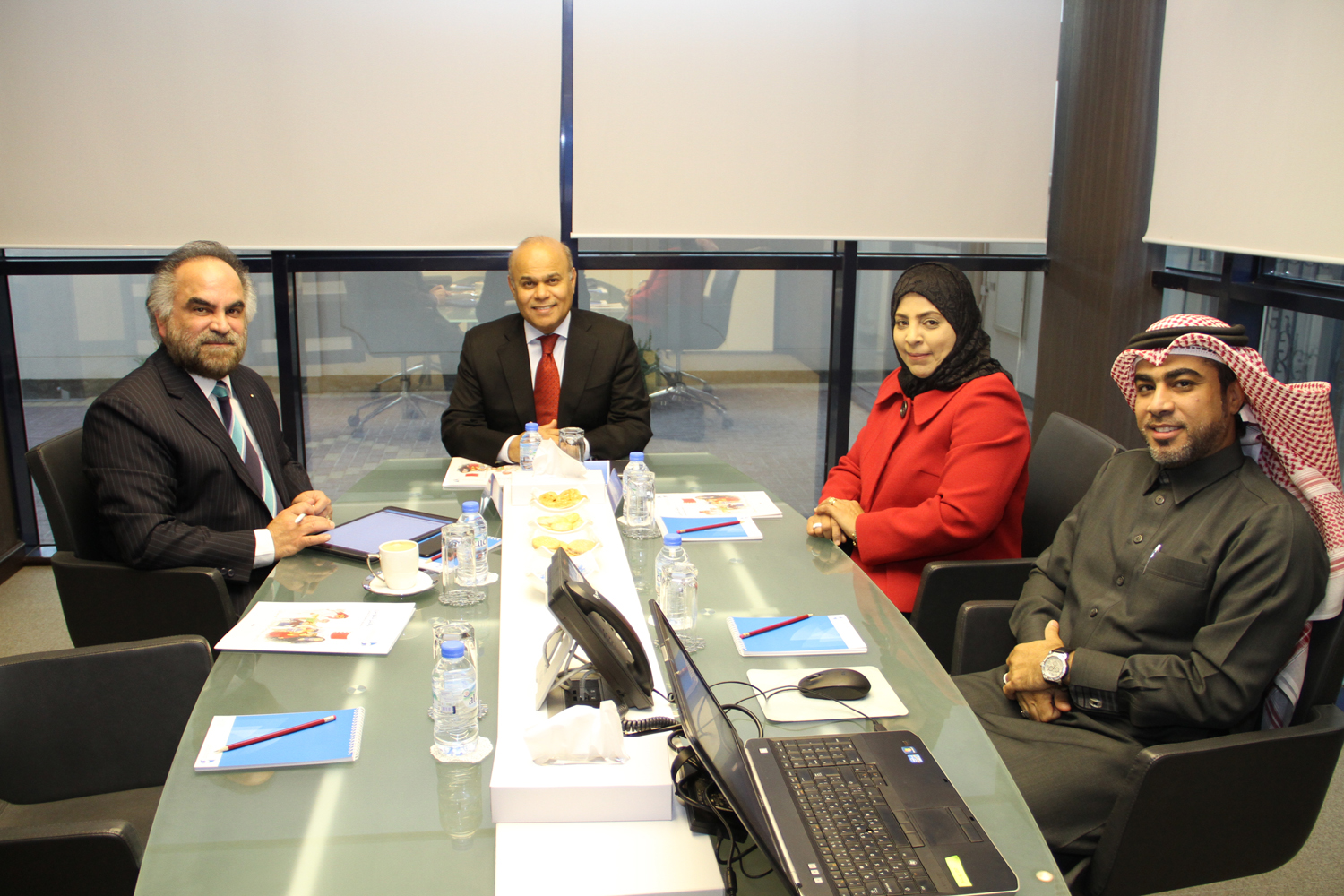NIHR’s Committee on Economic, Social and Cultural Rights convenes its 20th regular meeting
14 Dec 2016

The National Institution for Human Rights (NIHR)’s Committee on Economic, Social and Cultural Rights convened its 20th regular meeting at the NIHR’s headquarters in the Seef District under the chairpersonship of Mr. Fareed Ghazi. Head of Economic, Social and Cultural Rights Committee , and the comittee members Dr. Abdulrrahman Jawaheri and Dr. Jameela Al-Sammak,
The Committee discussed Secretariat-General’s opinions on the Draft Law to modify Article 2 of Law No. 74 of 2006 on the Welfare, Rehabilitation and Employment of Persons with Disabilities, which is prepared in light of the Draft Law presented by the Shura Council, which revolves around the handicapped sons and daughters of the Bahraini women married to non-citizens, who reside in Bahrain on a permanent basis, to be included with care under the mentioned Law, the matter which corresponds with NIHR’s vision.
On the other side, the Committee further discussed Secretariat-General’s opinions on the Draft Law to modify some of the provisions of Law No. 27 of 2005 on Education, which is prepared in light of the Draft Law presented by the Council of Representatives, which revolves around GCC citizens to be included by free primary and secondary education, and charging fees on non-Bahraini and non-GCC citizen students, the matter which further corresponds with the NIHR’s vision, as well as the proposal to establish a special committee to investigate applications for exemption of non-Bahraini and non-GCC citizen students from fees.
It is worth mentioning that the Committee on Economic, Social and Cultural Rights is one of NIHR’s permanent specific committees, which is concerned with showing opinion on issues related to economic, social and cultural human rights, following-up relevant public opinion issues and information programs, studying the economic conditions in the Kingdom of Bahrain in terms of income level and prices, evaluating educational curricula and giving feedback on their development pursuant to international standards, following-up the application of relevant international conventions and treaties, and reviewing Kingdom’s reservations on some provisions of conventions joined by it.


